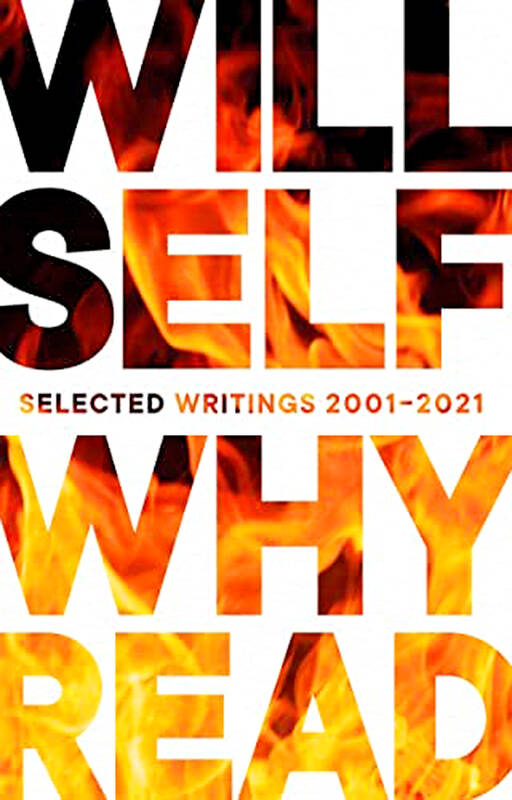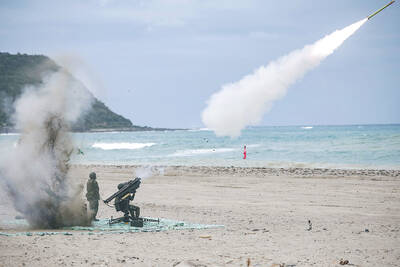“I’ll see your eidolon next Tuesday,” writes Will Self, 61, when I e-mail to arrange a video call to discuss his new collection of journalism, Why Read: Selected Writings 2001-2021, which is centered on the concern (as he later told me, or my on-screen spirit-image) that “people are dumbing down their entire response to their own culture by their unfettered use of social media.”
Self’s 26 previous books include Umbrella, shortlisted for the Booker prize in 2012, and its sequels Shark and Phone, the latter a single 624-page paragraph which the Telegraph called an “epic anti-tweet.”
Speaking from his home in south London, he said he liked the description “because the book was a deliberate attempt to call people’s attention to what was being lost by the digital. I don’t think the Umbrella trilogy is that hard to read at all; it’s only hard to read in contrast to a tweet. By Donald Trump!”

The Observer: How did you pick the pieces in Why Read?
Will Self: Until fairly recently, certainly since 2001, I probably wrote an average of 150,000 words of journalism every year, so there’s a vast amount to choose from. My New York editor said that in the age of the Web, collections like this need a theme or else readers feel they’re just getting a grab bag they could’ve sourced themselves. So the emphasis fell on the impact on reading and writing of what I choose to call bi-directional digital media.
TO: Your pessimism about social media hasn’t exactly won you fans online.
WS: I’ve always been anathema to quite a lot of people. With the possible exception of Umbrella, which lost the Booker to Hilary Mantel’s Bring Up the Bodies by a short nose, almost all my books have been Marmite.
Back in the 90s people didn’t like the fact that I did things in light entertainment. That was seen as unbefitting of a serious writer. People didn’t like that I took pleasure in the zeitgeist. In the 21st century they’ve equally been infuriated with me not taking pleasure in the zeitgeist, and particularly resiling from social media. I’m seen as an example of a discredited canonical view, a still-walking dead white heterosexual man, because that’s the easy way to look at it.
The most notorious piece in Why Read is a 2014 lecture that was reprinted [that same year] under the heading “The novel is dead (this time it’s for real),” which I never say in the text; what I say is that the novel has lost its centrality in our culture. That’s unarguable, yet I’ve been absolutely pilloried for it.
TO: It didn’t help when you said Sally Rooney wrote “very simple stuff with no literary ambition.”
WS: That was unfortunate and undecorous. I regret few things I’ve said, but that’s one of them. It’s never a good look for an old and established writer to criticize a young writer in quite that way. It’s perfectly legitimate to say that the books that seize attention now have less literary ambition compared with literature of 20, 30, 40 years ago, but it was wrong of me to put it on to any one writer.
TO: In one piece you say would-be writers should be ready for “20 to 30 years of solitary confinement.” Has your career really felt that way?
WS: I’ve done a lot of public work but I’m not very social. Yeah, I was the guy on Shooting Stars; I happened to drink with Jim Moir [Vic Reeves] and he was shocked when I said I’d do it. It just seemed like a laugh. I’m proud of some of my television work. When things like Question Time were a kind of village hall for the country, my record of speaking truth unto power was pretty good — and doing it live, you know?
As recently as 2016 I was on Question Time live telling Nigel Farage he was a grubby opportunist riding on the coat-tails of history. That’s not tweets; it’s about calling power to account in the public arena, and it needed that context to show that it was courageous, frankly, not craven, which is my problem with social media critique.
TO: In 2019 you wrote the text for Hakkasan fortune cookies.
WS: I needed money. That was pure money. I can’t complain about people [finding it funny]. But it was a point in life when unfortunately I really needed the money — I mean, I really did — and it came along and I took the job.
I’m an amor fati guy, so even the Rooney remarks, even the Hakkasan cookies, I don’t regret it that much; why would I? But it’s not ideal. I turned down Patek Philippe and Persol sunglasses and gin commercials, but I’ve skated close to full-on advertorial on a few occasions, which is worrying.
TO: You recently said you’re writing a novel set in 1950s America. What drew you to that time and place?
WS: When my mother was dying I found under her bed 40 years of intimate diaries and there’s an episode in her life from the late 1950s [in America] that I’m very interested in. It’s a real Will Self period because it’s maximum bomb fear, maximum repression. I’m also working on an aphoristic work of philosophy about how we deal with the fact that there’s no anthropic solution to anthropogenic climate change. Over 50 percent of the greenhouse gas emissions in human history have occurred since Kyoto in 1997. The world is toast.
TO: Name a writer who inspired you.
WS: In my late teens and early 20s, JG Ballard absolutely galvanized me. When I finished writing Shark [2017], I thought: I’ve managed it now, I’ve thrown off Jim’s influence; I read it back and his fingerprints were all over it. I went to interview him as a fanboy in the early 90s. It was a warm encounter and I said: “Hey man, d’you wanna come out one night and do the town?”
He said: “Oh no, that’s all over for me. I don’t socialize at all. I don’t mean to be offensive but I think writers commune through their work.”
I took it literally; we corresponded but I never tried to get him out again. Then a few years before he died I went to interview him once more and he said: “Why don’t you ever come and see me?”
From then on we had dinner quite regularly until he died. We anticipated a dip in his status — he’s not spoken about quite as much now, but boy will he come back in the next decade or so.

In late October of 1873 the government of Japan decided against sending a military expedition to Korea to force that nation to open trade relations. Across the government supporters of the expedition resigned immediately. The spectacle of revolt by disaffected samurai began to loom over Japanese politics. In January of 1874 disaffected samurai attacked a senior minister in Tokyo. A month later, a group of pro-Korea expedition and anti-foreign elements from Saga prefecture in Kyushu revolted, driven in part by high food prices stemming from poor harvests. Their leader, according to Edward Drea’s classic Japan’s Imperial Army, was a samurai

Approaching her mid-30s, Xiong Yidan reckons that most of her friends are on to their second or even third babies. But Xiong has more than a dozen. There is Lucky, the street dog from Bangkok who jumped into a taxi with her and never left. There is Sophie and Ben, sibling geese, who honk from morning to night. Boop and Pan, both goats, are romantically involved. Dumpling the hedgehog enjoys a belly rub from time to time. The list goes on. Xiong nurtures her brood from her 8,000 square meter farm in Chiang Dao, a mountainous district in northern Thailand’s

Located down a sideroad in old Wanhua District (萬華區), Waley Art (水谷藝術) has an established reputation for curating some of the more provocative indie art exhibitions in Taipei. And this month is no exception. Beyond the innocuous facade of a shophouse, the full three stories of the gallery space (including the basement) have been taken over by photographs, installation videos and abstract images courtesy of two creatives who hail from the opposite ends of the earth, Taiwan’s Hsu Yi-ting (許懿婷) and Germany’s Benjamin Janzen. “In 2019, I had an art residency in Europe,” Hsu says. “I met Benjamin in the lobby

April 22 to April 28 The true identity of the mastermind behind the Demon Gang (魔鬼黨) was undoubtedly on the minds of countless schoolchildren in late 1958. In the days leading up to the big reveal, more than 10,000 guesses were sent to Ta Hwa Publishing Co (大華文化社) for a chance to win prizes. The smash success of the comic series Great Battle Against the Demon Gang (大戰魔鬼黨) came as a surprise to author Yeh Hung-chia (葉宏甲), who had long given up on his dream after being jailed for 10 months in 1947 over political cartoons. Protagonist